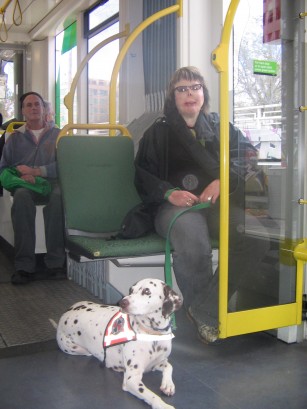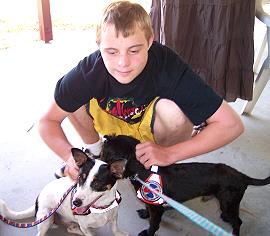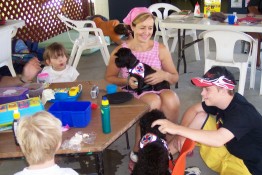OUR SERVICES
Assistance Dogs

Sections 8 & 9 of the Disability Discrimination Act 1992 (as amended 2009) guarantees that persons living with a diversity (disability) and partnered with an assistance dog have total access rights in nearly all situations this means any place which is open to the public such as public transport hospitals motels & hotels restaurants etc. The assistance dog is permitted as a medical aid the protection provided by the Disability Discrimination Act applies in all Australian states and Territories overriding any No-Pets and Animal Policies or Laws.
A.W.A.R.E. Dogs requires a statement from a health care professional that the person requesting an Assistance Dog lives with a disability/diversity. A guardian or carer may also apply on behalf of the individual to access one of our special dogs or our services with your dog (if your dog is deemed suitable).
For clients living with severe diversities, we help develop strategies and innovative solutions so as to ensure that they will be able to maximize the benefits of as well as ensuring good management of the Assistance Dog.
The ways in which an assistance dog can assist their partner are only limited by our imagination. Some of the help may be with assisting with balance, picking up dropped items, countering the effects of anxiety stress and/or other episodes, providing solace during acute and palliative therapies, providing motivational aid in rehabilitation therapies, reminding to take medication, helping with clothing, and many other possibilities.
Emotional Support Animal

An Emotional Support Animal is a companion animal (dog or other) for people living with psychological or physical health challenges. It may or may not have been task-trained. The purpose of this type of companion is for use in the home and it does not have public access rights. It cannot go in no-pets-allowed places with its person. It can (in some cases) live in no-pets-allowed housing, with a letter from the person’s doctor. In some cases, one can access other services with their Emotional Support Animal.
However, in all these cases, access is by request (which may receive a no). Someone might have a dog that they use only in the home. However, to have protected rights, it must be classified as an “Assistance Dog”. That is the main distinction between an Assistance Dog and an Emotional Support Dog. With an Assistance Dog you don’t have to make any special request because your rights are protected through legislation.
Facility Dog

Facility Dogs are usually partnered with health care professionals, care providers, or educators who utilize the facility dog to improve the physical or emotional health of those in their care. Facility Dogs either live with their handler or alternatively live at the facility where they work.
These facilities include schools, rehabilitation centers, homes for the aged, and psychiatric programs. Facility Dogs are usually used as a compliment to more traditional developmental and occupational therapies.
The type of work a Facility Dog Team will perform is varied. For example, a team working at a physical therapy center might engage patients in simple exercises, such as throwing a ball for the dog to retrieve. A team working at a program for people with developmental disabilities might focus on scheduled activities such as feeding time for the dog or grooming. Such experiences can be helpful in not only broadening living skills but also to provide enthusiasm in participation.
It is said that the greatest value of a Facility Dog is the unconditional love and attention the dog provides to the clients and patients with whom it engages.
For a person in recovery or in extended care, the mere presence of a friendly safe happy dog can be an uplifting experience.
- Heightened interaction and heightened cooperation
- Increased social stimulation
- A safer, more trusting environment
- Enhanced self awareness
- Decreased anger
- Decreased stress
- Incentives to practice skills
- Incentive to learn new skills
- Incentives to communicate
- Topics for conversation dealing with issues
- Topics for conversation other than issues
- Appropriate ways to meet the need to touch
- Greater degree of independence
